
CARACAS, Venezuela — These should be the best of times for Venezuela, blessed with the largest conventional oil reserves outside the Middle East and oil prices near record highs. But this country’s economic and social problems have become so acute lately that President Hugo Chávez is facing an unusual onslaught of criticism, even from his own supporters, about his management of the country.
In a rare turnabout, it is Mr. Chávez’s opponents who appear to have the political winds at their backs as they reverse policies of abstention and prepare dozens of candidates for pivotal regional elections. Mr. Chávez, for perhaps the first time since a recall vote in 2004, is increasingly on the defensive as his efforts to advance Venezuela toward socialism are seen as failing to address a growing list of worries like violent crime and shortages of basic foods.
While Mr. Chávez remains Venezuela’s most powerful political figure, his once unquestionable authority is showing signs of erosion. Unthinkable a few months ago, graffiti began appearing here in the capital in January reading, “Diosdado Presidente,” a show of support for a possible presidential bid by Diosdado Cabello, a Chávez supporter and governor of the populous Miranda State.
Outbreaks of dengue fever and Chagas disease have alarmed families living in the heart of this city. Fears of a devaluation of the new currency, called the “strong bolívar,” are fueling capital flight. While the economy may grow 6 percent this year, lifted by high oil prices, production in oil fields controlled by the national oil company, Petróleos de Venezuela, has declined. Inflation soared by 3 percent in January, its highest monthly level in a decade.
In fact, some economists see a slow-burning economic unraveling playing out in a country flush with oil revenues. But as Mr. Chávez embarks on his 10th year in power, it is becoming harder for him to blame previous governments for the malaise.
This holds true especially in poor areas where voters failed to turn out in support of the president in a December referendum on a constitutional overhaul that would have vastly increased Mr. Chavez’s powers, a stinging defeat from which the president has yet to recover. “I cannot find beans, rice, coffee or milk,” said Mirna de Campos, 56, a nurse’s assistant who lives in the gritty district of Los Teques outside Caracas. “What there is to find is whiskey — lots of it.”
The contrast between revolutionary language and the consumption of imported luxury items by a new elite aligned with Mr. Chávez’s government, known as the “Bolivarian bourgeoisie,” has led to questioning of the priorities of his political movement. “Chávez’s revolution has stalled, but it can move forward if he can solve some problems,” said Daniel Hellinger, a political scientist at Webster University in St. Louis who follows Venezuela. “I don’t envy him the challenge of trying to make the country’s government more effective in people’s daily lives.”
Mr. Chávez highlighted the challenge after his defeat at the polls when he called for a year of “revision, rectification and relaunching.” He issued an amnesty decree for opponents who had been charged with supporting a brief 2002 coup and shook up his cabinet, replacing his vice president and ministers in charge of the economy and fighting crime.
But for each minor policy shift or good economic statistic from the government, Mr. Chávez has stirred deeper anxiety by intensifying threats to expand state control of the economy and society. For instance, Mr. Chávez warned Monday that he would nationalize large food distributors caught hoarding groceries.
Pedro E. Piñate, an agricultural consultant in the city of Maracay, said: “We live in two countries, one inhabited by officials who think they can alter reality by sending soldiers to intimidate citizens. The other country is where the rest of us live in fear of being killed or kidnapped or of our businesses being seized.”
This fear is reflected in a statistic that is illegal to publish in Venezuela: the black-market value of the strong bolívar, or bolívar fuerte, put into circulation at the start of the year to replace the old bolívar. Its value hovers around 5.2 to the dollar according to currency traders here, less than half at the official rate, 2.15.
For other domestic problems, Mr. Chávez’s approach has been equally erratic. After the recent outbreak of dengue fever, which reached into his cabinet to infect Culture Minister Francisco Sesto, the president did not shake up the public health system. Instead, he called for an investigation of claims that the disease may have been altered into a more virulent strain as part of an attack on Venezuela by unidentified enemies.
Enemies of Venezuela have rarely been more threatening than in recent weeks, according to Mr. Chávez, who has elevated a political dispute with President Álvaro Uribe of Colombia to the point of mobilizing troops.
Last month, Mr. Chávez claimed Colombian military officials were conspiring with American officials in Bogotá to kill him. It was the 25th time that Venezuela’s government said that Mr. Chávez was the target for assassination since 2002, according to Tal Cual, a newspaper here.
As these domestic and economic troubles accumulate, Mr. Chávez faces a new test this year in state and municipal elections, with a reinvigorated opposition. Mr. Chávez stands to lose some authority if opponents win just a handful of important states or cities, almost all of which are now controlled by his supporters. Even more unpredictable are the dynamics within the president’s own movement, with insurgent candidacies clamoring to challenge the status quo.
“Chavismo is most vulnerable at the local and state level,” said Steve Ellner, a political scientist at Oriente University in eastern Venezuela. “That opens great opportunities for the opposition to erode Chávez’s power and influence, beginning with big gains in the elections held at the end of this year.”
Amid growing calls for debate and the grooming of new leaders in the Socialist Party he created last year for his followers, Mr. Chávez is trying to instill discipline within its ranks. He called for party members to be expelled if they initiated candidacies too soon for coming elections. The rule apparently does not apply to Mr. Chávez, whose bid to remove term limits for the presidency, along with other proposals to transform Venezuela into the hemisphere’s second socialist state after Cuba, was rejected by voters in December.
He mentioned a proposal last month to hold a vote in 2010 to allow him to run for re-election in 2012, when his current term expires. Billboards proclaiming “Por Ahora” — “For Now” — have gone up in the capital, reminding Venezuelans that Mr. Chávez will not give up his quest to reconfigure society.
Mr. Chávez has also not given up on his efforts abroad to deepen alliances with like-minded leaders. For instance, even as Venezuela struggles with a shortage of oil-drilling rigs, the government has sent two rigs to Ecuador, whose president, Rafael Correa, is a Chávez supporter.
This foreign aid, once tolerated by Mr. Chávez’s supporters, is emerging as a source of resentment among those left out of the country’s oil boom. “I see Chávez traveling and traveling abroad, and the money ends up somewhere else,” said Jesús Camacho, 29, who sells coffee on the street in Catia, an area of slums here, making about $8 a day.
Mr. Camacho said he had always voted for Mr. Chávez but had recently lost faith in politics. “This situation will be fixed by no man,” he said. “Only God.”
The New York Times
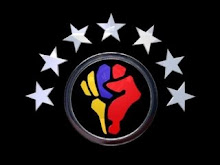



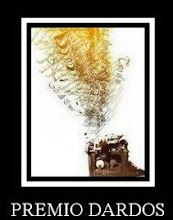











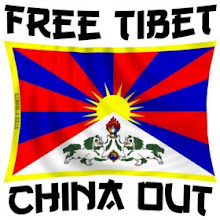










.jpg)


















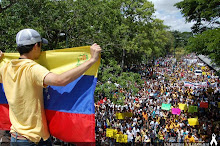





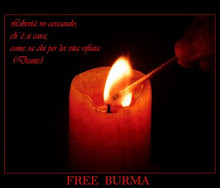

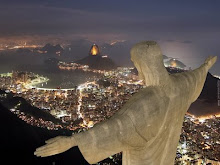




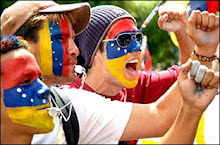




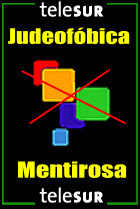


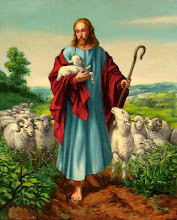
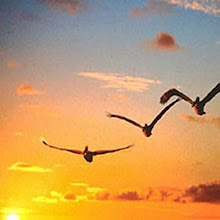






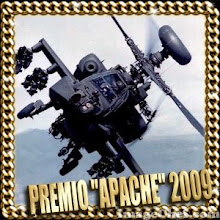
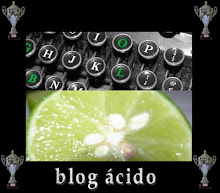
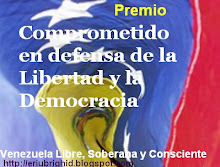


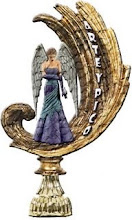






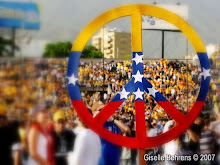





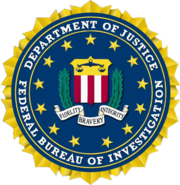



















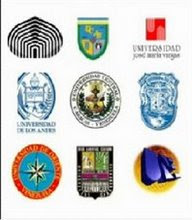


No hay comentarios:
Publicar un comentario